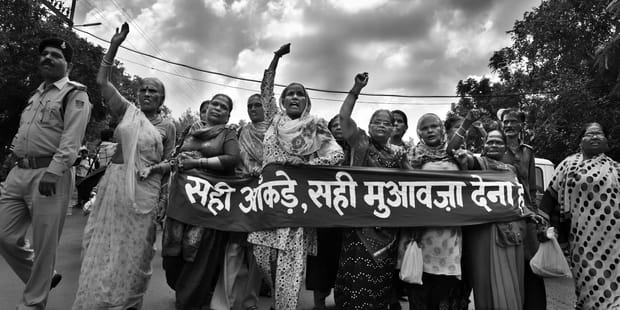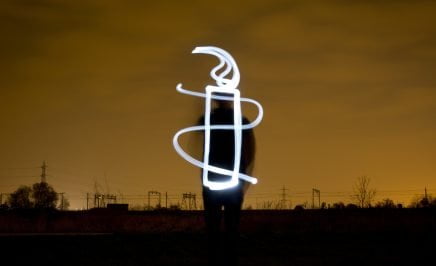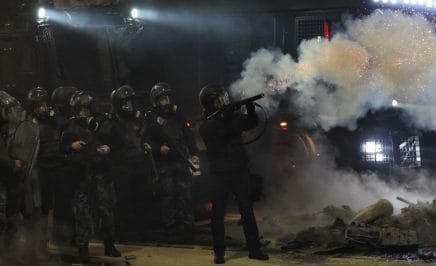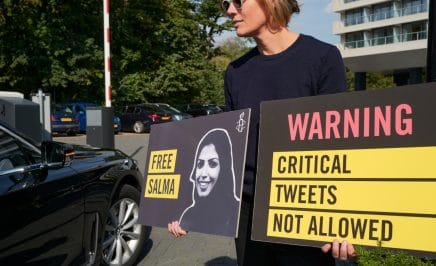For the past four decades, a woefully inadequate and callous response towards the victims and survivors of the Bhopal gas tragedy have been enabled by environmental racism, Amnesty International said today on the 40th anniversary of one of the world’s worst industrial disasters.
Forty years ago, a deadly gas leak from a pesticide plant in the city of Bhopal in India killed at least 22,000 people. Since then, Bhopal has been a ‘sacrifice zone’ for the US-based chemical company Union Carbide Corporation (UCC), and its later owner the Dow Chemical Company (Dow), as well as the US and Indian authorities, in which half a million people across multiple generations continue to suffer.
“Little has changed in the past forty years. Unequal power dynamics have ensured that justice is denied to the victims, who predominantly belonged to low-income, marginalized and minority communities. Meanwhile, those responsible, especially giant US-based companies, shamefully continue to evade their clear human rights responsibilities. The Indian and US authorities’ failure to hold to account all those responsible for this outrageous crime of corporate negligence is a travesty,” said Mark Dummett, Amnesty International’s Head of Business and Human Rights.
“Unequal power dynamics have ensured that justice is denied to the victims, who predominantly belonged to low-income, marginalized and minority communities. Meanwhile, those responsible, especially giant US-based companies, shamefully continue to evade their clear human rights responsibilities.”
Mark Dummett, Amnesty International’s Head of Business and Human Rights
“The survivor groups and their supporters continue to put up a truly inspirational fight for justice through legal actions, scientific research, and medical assistance in the absence of sufficient state and corporate support. Their story of grit and resilience is one to learn from, honour and remember on this anniversary.”
A ‘sacrifice zone’
Thousands of tonnes of toxic waste remain buried in and around the abandoned plant to this day leading to ongoing and expanding water pollution. This is clearly indicative of the area being a ‘sacrifice zone’ – an area so severely polluted or contaminated that it has demonstrable and devastating consequences on the health of local inhabitants.
Dow, one of the world’s largest chemical companies, in 2001 purchased UCC, the US-based company that had majority-owned the Bhopal plant at the time of the 1984 disaster. Dow took full control of UCC’s assets and benefits, and thereby, it should have also absorbed its liabilities. Instead, Dow has constantly distanced itself from any responsibility towards survivors.
In 1989, UCC made a wholly unfair and inadequate compensation settlement with the Government of India, which was agreed to without consulting the Bhopal survivors.
Moreover, lobbying and pressure from the US government has ensured that American nationals and companies responsible for the disaster have escaped criminal justice.
Entrenched ‘environmental racism’
Earlier this year, Amnesty International released Bhopal 40 Years of Injustice, a report documenting how entrenched environmental racism, through systemic and intergenerational discrimination, has enabled the lack of accountability of both state and corporate actors and the failure to ensure a comprehensive reparations programme. Responses from the companies are available in the annex of the report.
The report identifies environmental racism as numerous interconnected human rights violations which include the adverse impacts of environmental degradation on the rights to life, health, an adequate standard of living, education and other substantive rights, the encroachment on the right to a clean, healthy and sustainable environment, and the violation of the right to freedom from discrimination.
The indifference and disdain with which the survivors and their descendants have been treated ever since the gas leak, the lack of proper and effective accountability of both state and corporate actors for both the gas leak and ongoing contamination, and the failure to ensure a reparations programme that adequately addresses all past and ongoing harms have been enabled by entrenched environmental racism.
Therefore, Amnesty International has asked shareholders to end their relationship with Dow and consider withdrawing their investment from the chemicals company if it fails to take meaningful and rapid action to address the suffering through adequately compensation for all survivors and contamination assessment and clean-up.
Amnesty International also calls on the Indian government to continue to seek legal remedy from Dow on behalf of the victims and make up for any shortfall for those still suffering, or wrongly denied redress.
“Forty years on from the Bhopal Gas Tragedy the very least the survivors and their families deserve is justice. However, Dow continues to read from the same tired corporate playbook. No amount of denial of responsibility will ever erase the horror of the tragedy that took place in Bhopal and only prolongs the suffering of the survivors and hinders reparations,” said Mark Dummett.
Background
At about midnight on 2 December 1984, a leak of about 40 tonnes of lethal Methyl Isocyanate gas (MIC) from the pesticide plant in Bhopal, then owned by US-based Union Carbide Corporation, quickly killed thousands of people living in informal housing around the plant. It is estimated that more than 22,000 people have died prematurely as a direct result of exposure to the gas, with deaths continuing to occur.
More than 500,000 were injured or have suffered permanent harms, including through the inter-generational impact of MIC exposure on reproductive health, and through water sources contaminated by chemicals left on the site.
Amnesty International also released reports marking the 20th and 30th anniversaries of the Bhopal disaster.





